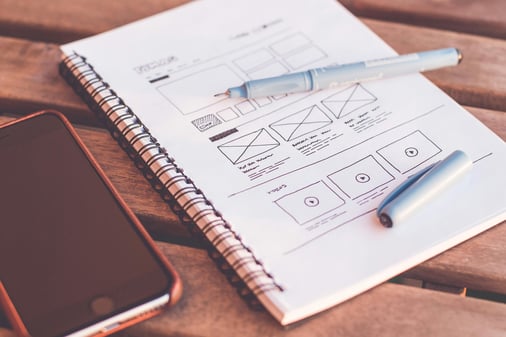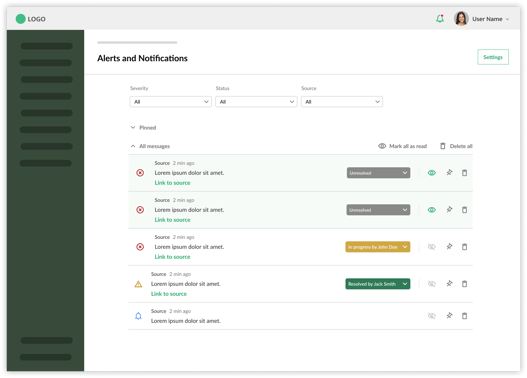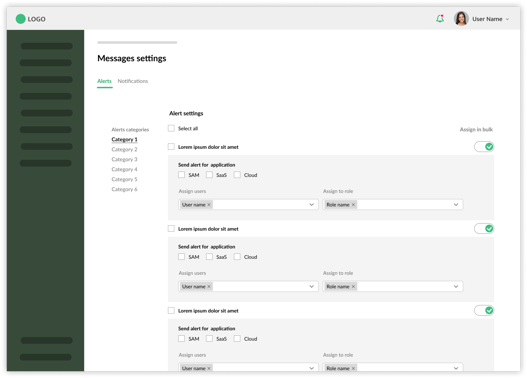Notification feature redesign
Project Title:
Redesign of Notification Feature for Cloud-Native Software Asset Management Platform.
Platform used for managing software assets, licenses, and subscriptions in large and medium corporations. The platform also tracks spending, identifies potential savings, and forecasts future expenditures.
Objective:
To enhance the notification feature.
Context:
The existing notification feature did not meet user expectations and required a comprehensive redesign to better serve the needs of the users.
My role:
A leading designer, coordinating work with a regular designer.
Assesment of current solution
↓
Analysing personas needs & problems
↓
Competition analysis
↓
User survey & interviews
↓
Gathering a list of notifications needed in the platform
↓
Mockups iterations
↓
Usability test - more iterations
↓
Hi-Fi creation
shipping to dev
implementation oversee
Steps I have taken
Project overview
Problem statement
Enhancing the feature to suit users needs.
Very simple feature
Information only about general events in the platform, for ex. successful data edit, adding a new user etc.
The notifications consist of a title and a short description
No interaction options
Subscription to general categories of notifications
Notifications is just a long list that can be read
Current solution state assesment


Some of the user
needs & problems I have identified
❌ Being informed on important/critical events in the platform
❌ Option to be directed to the place of the event from the notification
❌ Ability to manage if critical events have been acknowledged and worked on with information about state
❌ Possibility to choose some critical events notifications to be also sent via e-mail & chat apps
❌ Team leads would like to decide who is informed about critical events and want to be sure they can't turn it off
❌ Sometimes users can't find a notification for an event they would like to be informed about


Received messages list:
• Incoming messages are differentiated into alerts and notifications
• Every alert has: a status, state it is in, and the name of the person that is resolving it.
• User that decides to resolve an alert can assign it to themselves so that other can see it and see the status
• Obligatory links are attached to each alert that leads to the place of occurrence.
• Possibility to pin incoming messages
• Filtering options
Some of the conclusions
During the research, it turned out that users differentiate two types of notifications: more general, informative ones and critical events that need users' attention. Based on that the feature has been divided into two parts:
Notifications are distributed into more general categories to which every user can subscribe/unsubscribe.
Alerts are information on critical events that are shown in a detailed list with settings (thresholds, recipients assignment, external messages). This is available for the administrator to set up and can be also assigned as a role to another user.


There are three types of users relevant in case of notifications:
Administrator user – user which sets up the platforms, oversees data flows and connections
Regular user – doesn’t see administrative settings, interested in product information
Admin/Team Leader – user who decides who receives what kind of alerts, has access to alerts settings
Final Design
Alert settings options:
• Alerts can be assigned individually, to a user group or to a role.
• Type of delivery can be selected (in app, email, chat)
• Option to create custom alerts.
• Categories and filtering options
Notification subscription is in power of every user.


